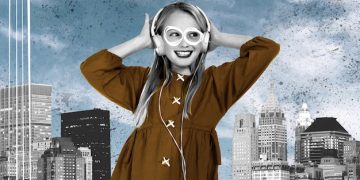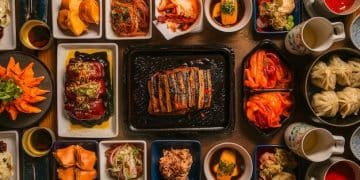K-Drama Beauty Standards: Impact and Influence in the US
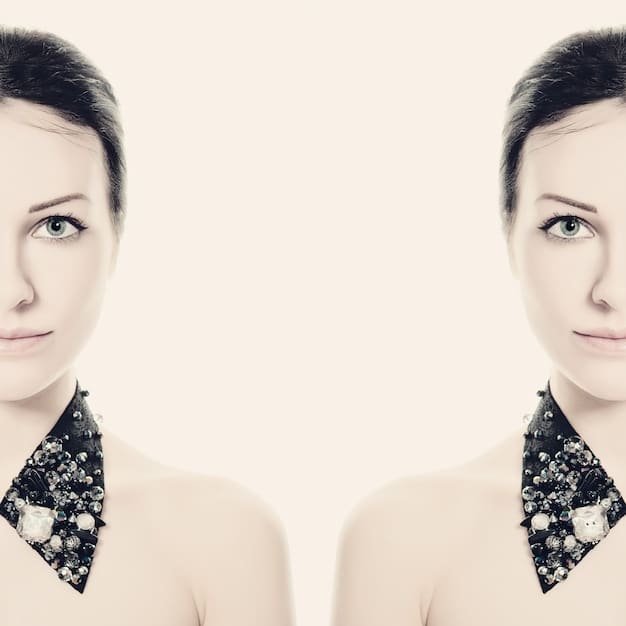
K-drama beauty standards, characterized by flawless skin, distinct features, and slim physiques, have significantly impacted beauty perceptions in the US, fostering both admiration and debate about unrealistic expectations.
Korean dramas, or K-dramas, have surged in popularity in the US, bringing with them not only compelling storylines and captivating characters but also a set of distinct k-drama beauty standards. But how deeply do these idealized looks influence American perceptions and beauty ideals?
The Allure of K-Drama Aesthetics
Korean dramas present a visually appealing world, where actors and actresses often embody specific beauty ideals. These aesthetics, carefully curated and consistently portrayed, create a certain image that resonates with audiences worldwide. But what exactly makes these aesthetics so captivating, and how are they different from Western beauty standards?
Defining K-Drama Beauty Standards
K-drama beauty standards typically include traits such as:
- Flawless, porcelain-like skin
- Large, youthful eyes, often enhanced with “aegyo sal” (under-eye fat)
- A small, V-shaped face
- A slim, almost ethereal physique
These features are often achieved through skincare routines, makeup techniques, and, in some cases, cosmetic procedures.
Cultural Roots of Korean Beauty
The emphasis on these particular features has deep roots in Korean culture. Historically, pale skin was associated with nobility and wealth, as it indicated a life of leisure removed from manual labor. Similarly, youthful features are highly valued, reflecting a societal emphasis on innocence and purity.
The popularity of K-dramas has amplified these pre-existing cultural preferences, projecting them onto a global stage and influencing beauty trends far beyond the Korean peninsula.
This allure comes from the meticulous presentation seen on screen, sparking interest to the culture’s beauty practices.
The Impact on US Beauty Trends
The growing popularity of K-dramas has undoubtedly influenced beauty trends in the US. From skincare routines to makeup choices, American consumers are increasingly adopting elements of the K-beauty aesthetic. How is this trend manifesting, and what products are gaining traction?
K-Beauty Skincare Takes Center Stage
One of the most significant impacts is the rise of K-beauty skincare. The Korean approach emphasizes prevention, hydration, and gentle ingredients. Products like sheet masks, essences, and serums have become staples in many American skincare routines.
- Sheet Masks: Offer intense hydration and targeted treatments.
- Essences: Lightweight liquids that hydrate and prepare the skin for subsequent products.
- Serums: Concentrated formulas designed to address specific skin concerns.
Makeup and Cosmetic Influences
Beyond skincare, K-dramas have also influenced makeup trends in the US. The focus is often on achieving a natural, dewy look with subtle enhancements. “Glass skin,” a term for exceptionally smooth and radiant skin, has become a sought-after goal.
Consequently, these trends bring about a different perspective on makeup altogether.
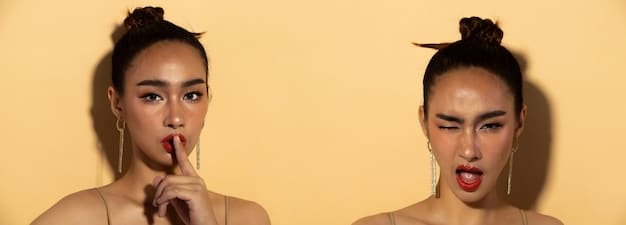
Potential Issues with Idealization
While K-beauty can be admired, it’s essential to approach these trends with a critical eye. The pursuit of idealized beauty standards can lead to several potential issues, particularly concerning body image and self-esteem. What are some of the negative impacts, and how can we promote a healthier perspective?
- Unrealistic Expectations: Attempting to replicate airbrushed, filtered images can lead to disappointment.
- Body Image Concerns: Constantly comparing oneself to idealized images can negatively impact self-esteem.
- Pressure to Conform: Feeling pressured to adhere to a specific beauty standard can lead to anxiety and stress.
It’s essential to remember that beauty is diverse and subjective. Focusing solely on achieving a specific look can overshadow individual uniqueness and self-acceptance.
That said, these standards are still viewed with high regard in society due to high exposure.
Promoting Healthy Beauty Standards
Instead of blindly chasing idealized aesthetics, it is important to promote a healthier approach to beauty. This involves celebrating diversity, focusing on self-care, and recognizing the artificiality of many media portrayals. So how can we cultivate a more balanced and inclusive view of beauty?
Understanding that beauty standards are culturally influenced is important.
Embracing Diversity and Inclusivity
The beauty industry should strive to represent a wide range of ethnicities, body types, and abilities. Seeing diverse faces in media can help broaden perceptions of what is considered beautiful and promote greater self-acceptance.
Focusing on Self-Care and Wellness
Instead of focusing solely on external appearance, prioritize self-care practices that promote overall well-being. This includes eating healthy, exercising, getting enough sleep, and engaging in activities that bring joy and reduce stress.
True beauty radiates from within and is enhanced by a healthy lifestyle.
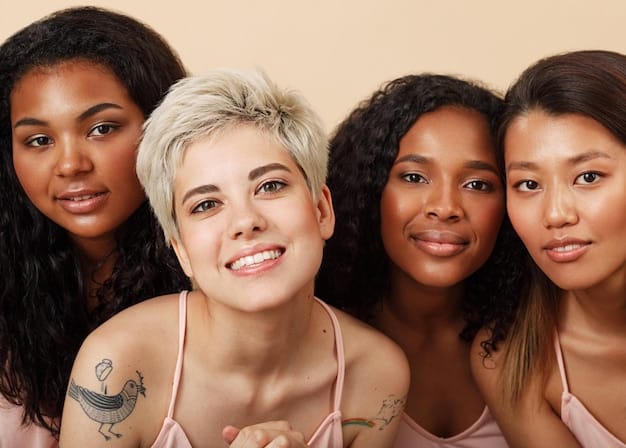
The Role of Media Literacy
Media literacy plays a crucial role in navigating the world of beauty standards. Understanding how images are manipulated and how trends are created can help individuals develop a more critical and discerning perspective. How can we encourage media literacy among young people and adults?
Recognizing Filters and Edits
It’s important to remember that many images seen online and in magazines are heavily filtered and edited. Recognizing these manipulations can help temper expectations and prevent feelings of inadequacy.
Understanding Marketing Tactics
The beauty industry is driven by marketing, and trends are often created to sell products. Being aware of these tactics can help consumers make informed decisions based on their own needs and preferences rather than external pressures.
This critical awareness can bring a sense of ease for some people because of this realization.
The Future of Beauty in the US
As K-dramas continue to gain popularity, the influence of Korean beauty standards is likely to persist. However, there is also a growing awareness of the importance of diversity, inclusivity, and self-acceptance. What does the future hold for beauty in the US, and how will these competing forces shape the landscape?
Blending Influences and Personalization
The future of beauty may involve a blend of Korean and Western influences, with a greater emphasis on personalization. Instead of striving for a uniform ideal, individuals may selectively adopt elements of K-beauty that resonate with their personal style and preferences.
This personalized approach also gives unique identity to how someone wants to portray themselves.
Celebrating Individuality and Self-Expression
Ultimately, the goal should be to celebrate individuality and self-expression. Beauty should be about feeling confident and comfortable in one’s own skin, rather than conforming to external expectations.
| Key Aspect | Brief Description |
|---|---|
| ✨ Flawless Skin | Emphasis on achieving clear, radiant skin through skincare routines. |
| 👁️ Youthful Eyes | Desire for large, bright eyes, often enhanced with makeup techniques. |
| 🌱 Natural Look | Achieving a dewy and subtle makeup style. |
| 🌍 Cultural roots | Historical importance of pale skin is the major factor. |
Frequently Asked Questions
▼
The most prominent standards include flawless skin, large eyes, a small face, and a slim physique. These features are consistently showcased in K-dramas, influencing viewers’ perceptions.
▼
K-beauty has introduced the US to innovative products like sheet masks, essences, and serums, promoting a focus on hydration, prevention, and gentle ingredients in skincare.
▼
Idealizing these standards can lead to unrealistic expectations, body image concerns, and pressure to conform, negatively impacting self-esteem and overall well-being.
▼
By celebrating diversity, focusing on self-care, recognizing media manipulation, and promoting media literacy, we can foster a more balanced and inclusive view of beauty.
▼
Media literacy helps individuals understand how images are manipulated and trends are created, enabling them to develop a more critical and discerning perspective on beauty.
Conclusion
The influence of k-drama beauty standards in the US is undeniable, but it’s essential to approach these trends with a balanced perspective. By embracing diversity, prioritizing self-care, and cultivating media literacy, we can navigate the world of beauty with confidence and self-acceptance.




